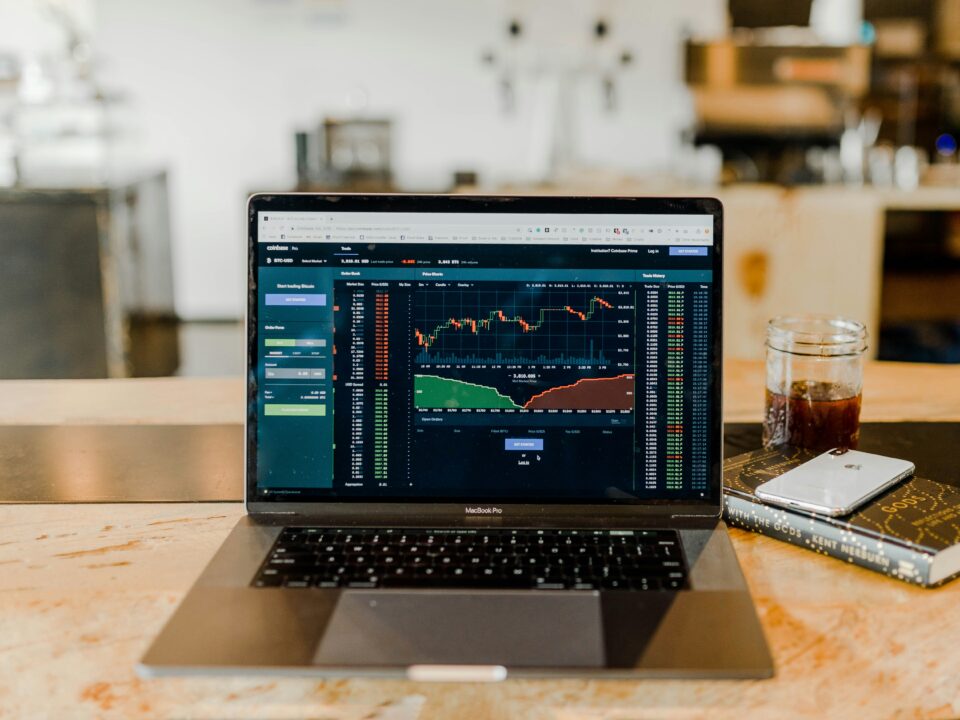
Institutional Trading: Advancing the Future of Finance
August 13, 2024
John Lowry Spartan Capital Describes Achieve Your Financial Goals with Expert Wealth Management Services
September 4, 2024In today’s fast-paced financial markets, institutional trading plays a crucial role, often setting the tone for market movements and trends. While traditionally the domain of large economic entities, the influence of institutional trading has increasingly become relevant to the modern retail investor. Understanding its dynamics can offer valuable insights and potentially lucrative opportunities for individual investors looking to navigate the complex world of stocks, bonds, and other financial instruments.
What Is Institutional Trading?
Institutional trading refers to the buying and selling large blocks of securities by organizations such as mutual funds, pension funds, insurance companies, hedge funds, and other large financial entities. These institutions typically handle large volumes of trades, significantly impacting market prices and liquidity. Unlike retail investors, who may trade small amounts, institutional traders can move millions or billions of dollars in a single transaction.
The primary goal of institutional trading is to maximize returns for the institution’s stakeholders, which could be shareholders, policyholders, or beneficiaries. Professional portfolio managers and traders with access to advanced technology, sophisticated analytics, and deep market insights often manage this trading. As a result, institutional trading can dictate market trends, with their buying and selling activities influencing the direction of stock prices.
The Impact of Institutional Trading on Market Dynamics
The sheer volume of trades conducted by institutions means they significantly impact market dynamics. When institutions buy large quantities of stock, the demand increases prices. Conversely, when they sell, the increase in supply can push prices down. This effect is often seen in sharp price movements, which can be either a boon or a bane for retail investors.
For example, if a hedge fund decides to unload a significant portion of its holdings in a particular stock, the price of that stock might drop sharply. Retail investors unaware of this institutional activity might be caught off guard, resulting in losses. On the flip side, if an institutional investor starts accumulating company shares, it might signal confidence in its company, potentially offering a buying opportunity for retail investors.
Understanding these dynamics can help individual investors make more informed decisions. By monitoring institutional trading activity, retail investors can better anticipate market movements and adjust their strategies accordingly.
Tools and Strategies for Retail Investors
With the advent of technology and the democratization of financial information, modern retail investors now have access to tools that can help them monitor institutional trading activities. For instance, regulatory filings such as the 13F form, which institutions managing over $100 million must submit quarterly to the SEC, provide a glimpse into the stock holdings of large institutional investors.
Several financial platforms offer analysis and summaries of these filings, making it easier for retail investors to track what institutions buy and sell. Tools like stock screeners, market news aggregators, and trading platforms with real-time data feeds can help investors stay informed about institutional activity.
Moreover, understanding the strategies employed by institutional investors can be beneficial. Institutions often use techniques such as value investing, growth investing, and momentum trading, which retail investors can adapt to suit their investment objectives. For instance, if a retail investor notices that several institutions are heavily invested in a particular sector, it could indicate a broader market trend worth exploring.
The Role of Algorithmic Trading
A significant portion of institutional trading today is driven by algorithms. Algorithmic trading involves using computer programs to execute trades based on predefined criteria like price, volume, or timing. These algorithms can process large amounts of data and execute trades much faster than human traders, allowing institutions to capitalize on fleeting market opportunities.
While algorithmic trading can lead to greater market efficiency, it can also increase volatility, especially in the short term. For retail investors, understanding the impact of algorithmic trading is crucial, particularly in markets where prices can fluctuate rapidly due to high-frequency trading.
Retail investors might need more resources to engage in algorithmic trading, but they can still benefit from understanding its effects. For instance, knowing how algorithms might react to certain news events or market conditions can help investors avoid getting caught in sudden price swings.
Opportunities and Risks for the Modern Investor
For the modern retail investor, institutional trading presents both opportunities and risks. On the one hand, by understanding and tracking institutional activities, retail investors can piggyback on the insights and strategies of professional traders. This could lead to more informed investment decisions and better portfolio performance.
On the other hand, the scale and speed of institutional trading can sometimes disadvantage retail investors. Sudden market movements driven by institutional trades can lead to losses for those who need to prepare. Additionally, the complexity of some institutional strategies, such as derivatives trading or short selling, might be beyond the reach of most retail investors.
Retail investors should focus on education and due diligence to mitigate these risks. Staying informed about market trends, using available tools to monitor institutional activities, and understanding the basics of different trading strategies can go a long way in leveling the playing field.
Bridging the Gap
Institutional trading is a powerful force in modern financial markets, and all investors feel its influence, big and small. For retail investors, understanding the dynamics of institutional trading offers a pathway to better investment decisions. By leveraging available tools and strategies and staying informed about market trends, the modern investor can navigate the complexities of the market with greater confidence and success.





